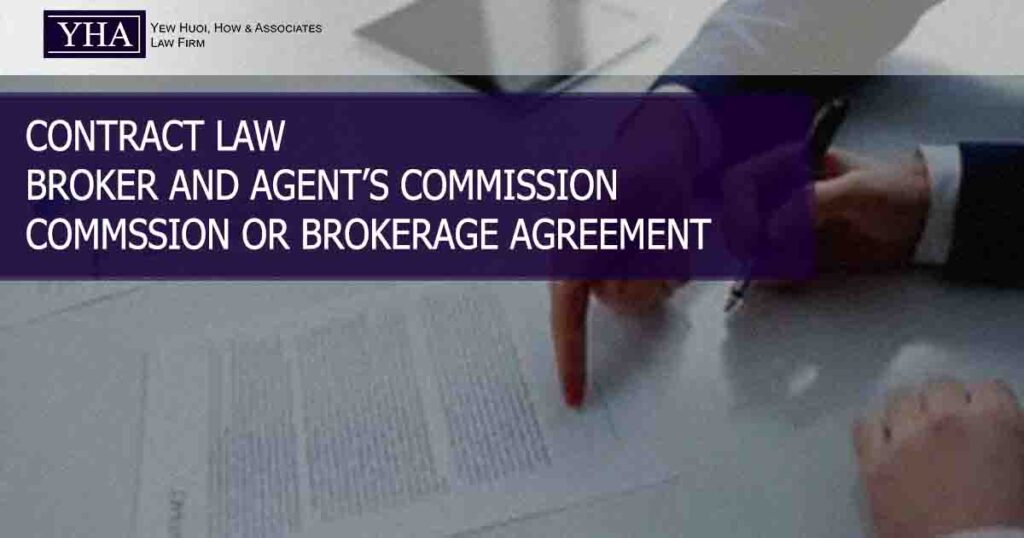Brokerage contract or commonly known as commission agreement allows referral, agent or broker to earn a commission based on sales amount received by the principal.
How does commission agreement work?
- A commission agreement is a conditional contract. The broker or agent is entitled to his commission or brokerage fee when the event, upon which his entitlement arises, has occurred. For examples when the sales are completed between the principal and the third party or when the principal received payments from third party.
- Remuneration of the broker or agent typically takes the form of a commission, being a percentage of the value of the transaction the agent is to bring about for the principal.
- When the event occurred, the principal is bound by the contract to pay the agreed sum stated in the commission or brokerage agreement.
How is the agreed sum calculated?
- Agreed sum is usually calculated based on a formula provided in the agreement.
- A multiplier or multiplicant basis is commonly stated in the agreement. For example, 10% of the principal total sales to the third party or 10% of the payment received by the principal from the total sales to the third party.
What if the principal refused to provide evidence, details or documents pertaining to the sales or payment received?
- The broker or agent may take out a discovery application against the principal or third party.
- Alternatively, if there is risk documents or evidence may be destroyed to defeat the broker’s or agent’s claim for commission, an Anton Pillar Order can be sought from the court against the principal or third party.
- Is the broker or agent required to prove losses arising from principal’s breach or refusal to pay commission earned?
- No. A commission agreement entails claim for payment of a debt and NOT claim for damages for breach of contract.
- A commission agreement provides for definite sum of money fixed by the agreement in return for performance of a specified obligation. This is also known in law as the “occurrence of some specified event or condition”.
- The rule on damages do not apply to claim for a debt. There is no need for the broker or agent to prove actual loss suffered as a result of the principal’s breach. The principle of law on remoteness of damage or mitigation of loss does not apply to contract of commission.
- (Case in Point: Lim Beng Kuan v Helms Geomarine Sdn Bhd [2023] 9 MLJ 155 and Ng Chin Tai (trading in the name and style of Lean Seh Fishery) & Anor v Ananda Kumar a/l Krishnan [2020] 1 MLJ 16)

